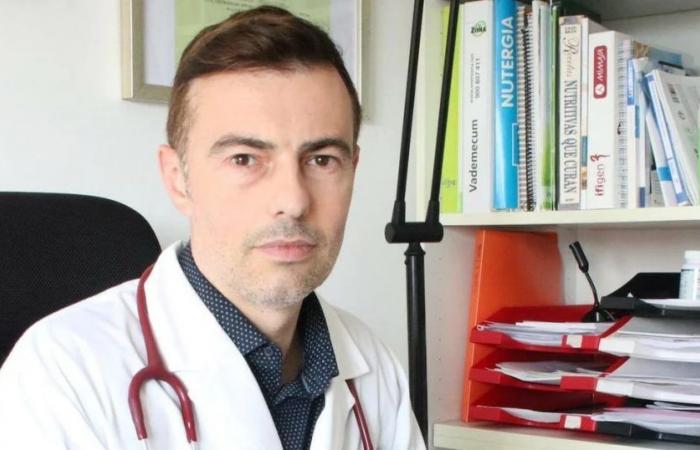
In recent years, there has been a growing interest in both society and the scientific community to fully exploit our longevity. It is no longer just about living longer, but about reaching 100 years of age in good health. Therefore, the anti aging medicine (or healthy aging) is focusing its efforts on finding the keys that allow us to increase our life expectancy.
He Dr. Iván Ibáñez is an expert in longevitymedicine antiaging and metabolic, as well as director of the Longevity Clinic in Girona and member of the Spanish Society of Anti-Aging and Longevity Medicine (SEMAL). In an interview with Infobae Spainthe specialist has explained what our life expectancy is and what we can do to extend it, especially from the point of view of our daily diet.
Question: To what extent is it in our hands to influence the longevity of our lives?
Answer: Longevity is influenced by a combination of genetic and environmental factors. This is what is called epigenetics. Genetics only influences, in general, 20% and epigenetics or lifestyle 80%. While we cannot change our genetics, we can significantly influence our life expectancy through our daily choices. Healthy habits such as a balanced diet, regular exercise, stress management, adequate sleep and avoiding risky behaviors such as smoking or excessive alcohol consumption can increase our life expectancy and improve its quality.
Q: Do you think that society is increasingly interested in this specialty of medicine?
A: Yes, society shows growing interest in longevity medicine. As the global population ages, the search for methods to live longer in good health has intensified. Longevity medicine not only focuses on prolonging life, but also on improving the quality of life in later years. This interest is reflected in the increase in scientific research, technological advances, and the popularity of preventive health and wellness programs. This is what I call “5 P” medicine: predictive, preventive, participatory, personalized and precision medicine.
Q: How does diet influence anti-aging or healthy aging?
A: Diet plays a crucial role in healthy aging. Diets rich in fruits, vegetables, whole grains, lean proteins and healthy fats can reduce the risk of chronic diseases such as diabetes, heart disease and certain types of cancer. Antioxidants present in many plant foods fight oxidative damage in cells, which can slow the aging process. Additionally, a balanced diet helps maintain a healthy weight, reduce inflammation, and improve immune system function. The objective apart from having a nutrition without deficiencies is to inhibit insulin spikes. Therefore, I always recommend eating the protein first and then the carbohydrate or fruit, vegetables, salad… If we eat a piece of fruit mid-morning or mid-afternoon, first the ideal would be to eat a handful of nuts to prevent the glycemic peak.
Q: What should our breakfasts, lunches and dinners be like to enhance our longevity?
A: Breakfast should be nutritious and balanced, incorporating proteins (eggs, Greek yogurt, nuts), complex carbohydrates (oats, fresh fruits) and healthy fats (avocado, chia seeds). Lunch should have a combination of lean proteins (chicken, fish, legumes), varied and colorful vegetables, and whole grains (quinoa, brown rice). Adding healthy fats like olive oil or avocado can also be beneficial. Dinner should be light but nutritious, with a portion of protein (fish, tofu), accompanied by vegetables (salad, broccoli, spinach) and a small portion of complex carbohydrates (brown rice, for example, but in smaller quantities than the average day).
Q: Is there a specific type of food that accelerates aging and we should avoid?
A: Yes, there are certain foods that can accelerate the aging process and should be avoided or consumed in moderation. Refined sugars and processed products can cause inflammation and cellular damage; trans fats present in many processed and fried foods are associated with cardiovascular diseases; Processed meat, such as sausages and bacon, contain high levels of preservatives and unhealthy fats. Excessive alcohol can damage the liver and other organs, in addition to contributing to dehydration and premature aging of the skin.
Q: How does sleep influence this aging process?
A: Sleep is essential for cell repair and regeneration. During sleep, the body produces growth hormones that help repair tissues and muscles and the brain eliminates toxins accumulated during the day or the hormone melatonin with great antioxidant power.
Q: How can not getting enough sleep harm our longevity?
A: Chronic lack of sleep is linked to an increased risk of diseases such as obesity, diabetes, hypertension and heart disease, all of which can accelerate aging. Additionally, quality sleep contributes to better cognitive function, mental health, and tissue regeneration.





